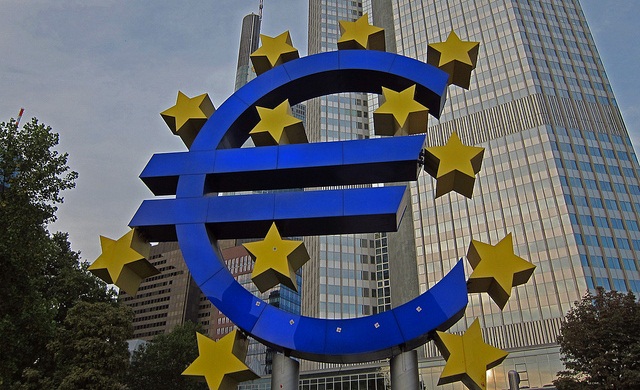Eurozone financial ministers agreed early this morning on a deal to make the European Central Bank the bloc’s banking supervisor, making a step towards a future banking union. The ECB will monitor up to 200 eurozone lenders from early 2014, but one of the main purposes of the reform – to allow the €500bn of the common rescue fund to be injected directly into the banks – will remain out of question until late 2014.

If Michel Barnier, the EU commissioner responsible for the proposal, hailed a “historic agreement” providing a “fundamental element for financial stability in Europe”, Wolfgang Schäuble, the German finance minister was less triumphant. “Again and again” said Mr Schäuble “we have created expectations we cannot fulfil and that is very dangerous. We should be modest,” concluded the minister, lowering some countries’ expectations that the banking supervisor would lead to more risk-sharing policies.
According to the deal, ECB will have direct responsibility for banks with assets of more than €30bn or representing more than a fifth of a state’s national output. This definition will exclude most of Germany’s retail banking sector and its savings banks, that will remain under the oversight of German national authorities. Every eurozone country will have at least three banks supervised from Frankurt.
Apparently, the ECB will retain the power to intervene in any bank and deliver instructions to national supervisors. Nevertheless it is still unclear whether it will configure as a two-tier regime or give the European Central Bank ultimate responsibility for all banks.
Trying to claim a political victory, George Osborne, UK chancellor, said it had been “a long night of negotiation in which Britain had emerged with a very good deal. We wanted to make sure the single market was protected . . . that has been achieved.” Actually countries like the UK, Czech Republic and Sweden made clear that they will not join a banking union. Britain also obtained that any decision of the European Banking Authority, the EU agency coordinating the work of national supervisors, will have to be approved also by a plurality of countries outside the banking union.
“There is a move now towards euro-banks, euro-taxes, euro-transfers, euro-commission,” commented Anders Borg, the Swedish finance minister. “We think those are steps in the wrong direction. It might be very popular among the Eurocrats, but I think there are very few Europeans actually wanting these developments,” Borg added.

 Hot Features
Hot Features













